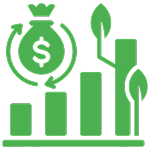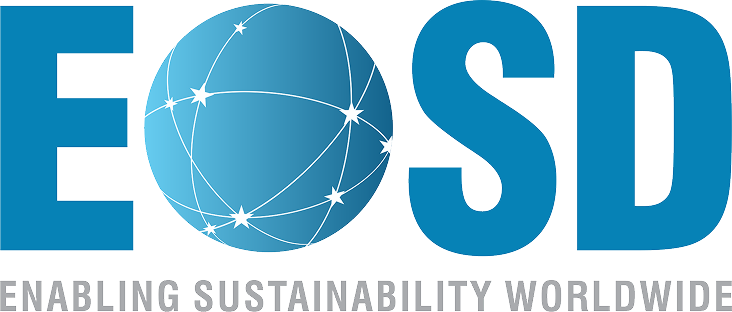Become a Global Impact Leader in the Financial Industry
Experience the power of true sustainability to boost your institution’s profitability, enhance competitiveness and define the next generation banking and finance.
Super-Intensive Program for Time-Strapped Financial Sector Executives. Germany, 15th to 17th April 2026.
The Financial Industry is at a Crossroads.
Are you Leading or Following?
- Do you face challenges to mobilize and deploy funds for delivering measurable and verifiable impact?
- Are you equipped with the knowledge and credentials to stand out as a global impact leader in the competitive financial industry?
- Is your current sustainability strategy working? Can it boost your profit, improve your asset quality and expand your market share? Or is it a cost center and ‘nice-to-have’ without any benefit to your institution?
- Are you fully equipped to combat greenwashing and safeguarding your institution against regulatory, legal and reputational risks?

Establish your Leadership Credentials with GILFI &
Drive the Impact that Matters
Discover How This Executive Program Will Empower You To

Gain a Deep Understanding
of True Sustainability
Go beyond buzzwords and clichés to master authentic sustainability to deliver real results.

Drive Purpose
Led Profitability
Explore how sustainability can become your core business and enhance corporate performance

Navigate the Evolving
Regulatory Landscape
Stay ahead of regulations and ensure compliance in a dynamic environment.

Mitigate Risks & Seize
New Opportunities
Turn sustainability challenges into strategic advantages

Mobilize Capital for
Sustainable Impact
Explore how sustainability can become your core business and enhance corporate performance

Become a Recognized
Global Impact Leader
Join a distinguished community of peers and shape the future of finance.
Nomination Criteria
GILFI is open to financial sector executives and to-be-leaders. It is specifically designed for

Presidents, CEOs, and C-Level Executives
Presidents, CEOs, and C-Level Executives of Commercial Banks, Development Finance Institutions, SME Banks, Microfinance Institutions, Private Equity, Venture Capital, Credit Unions, Cooperative Banks, Asset Management Companies, and Non-Bank Financial Institutions.

Board Chairs and Members
Seeking to understand and fulfil their evolving fiduciary duties and provide effective oversight on sustainability agenda.

Senior Sustainability Professionals & Managers
Building expertise in true and holistic sustainability

Central Bankers and Regulators
Interested in modernizing banking supervision and regulation, mainstreaming true sustainability across the financial sector and combating greenwashing.
GILFI Highlights: How this Program will Build Your Leadership Brand and Transform Your Organization
Over Three Intensive Days in Germany, You will

- Dig deep into the Sustainability Universe of Financial Sector.
- Operationalize True Sustainability for Boosting Green Profitability.
- Disrupt and not be disrupted in the field of financial services.
- Stay ahead of the regulatory curve.
- Be the Leader in Next Generation Banking and Finance.
Program Delivered by the European Organisation for Sustainable Development (EOSD)
EOSD is a respected key global player dedicated to make sustainability the core business of financial institutions, a solid source of corporate profitability and build a strong foundation for sustained organizational success EOSD is one of the oldest organizations globally that specializes in the field of sustainable banking and finance. It started financial sector sustainability initiatives in 2009, has been hosting the annual Global Sustainable Finance Conferences since 2011 and together with the City of Karlsruhe in Germany, EOSD confers the Sustainable Finance Awards to financial institutions with significant contributions in the field of sustainable banking and finance.
One of the EOSD’s flagship interventions is the Sustainable Standards and Certification Initiative (SSCI) for value-driven financial institutions. The journey of SSCI began in 2018 with the participation of central bank, commercial bank, microfinance institution, non-bank financial institution and development bank.The pilot version, the Version 1.0, of the Standards was launched after global consultations in 2019, whereby the know-how, knowledge and insights that went into this initiative have been generated since 2009. Subsequently, the version 2.0 was developed, which is not only far more comprehensive, but also makes implementation much easier, for example, through proprietary Sustainability Compliance Apps.

Program Agenda: A Glimpse into Your
GILFI Experience
The world is undergoing a seismic shift. The post-World War II order is coming to an end and what will emerge next is unknown.
Tariffs imposed by the United States of America (USA) are set to reshape global trade, disrupt established supply chains and expected to have unintended consequences, such as high inflation, unemployment and exchange rate instability.
The global power shift is in making as the share of emerging economies in international trade increases significantly. China today is an economic powerhouse and its economy is the largest in the world on a purchasing power parity basis. The geopolitical order also stands challenged after the Russian invasion of Ukraine.
This session offers an opportunity to look at the big picture in which the financial institutions and other key stakeholders, including the public agencies, operate today. The knowledge gained during this session will help the delegates in setting strategic direction of their organizations, thinking beyond their own conventional roles and advising their governments, businesses and industry and their clients. The proceedings will also support the efforts to safeguard and promote the interest of their institutions and countries in times of global change.
This session and the subsequent ones will include interactive discussions and debate.
The emerging technologies, business model disruptions and the rise of unicorns, among others, are reshaping the world, which is under extraordinary threat from fast-unfolding environmental crisis.
In these changing times, there is a demand for leadership with vision and knowledge to address the unfolding challenges. Leadership is also required to meet the expectations of stakeholders who are demanding responsible banking and finance so that the financial capital is deployed for the well-being of the society and environment and turning the growing challenges into opportunities for sustainable economic development.
During this session, the delegates will have an opportunity to imagine a new economy in their jurisdictions and identify their roles in creating it. They will gain knowledge needed to meet the changing societal needs and influence the evolving policy and regulatory environment.
The emerging technologies, business model disruptions and the rise of unicorns, among others, are reshaping the world, which is under extraordinary threat from fast-unfolding environmental crisis.
In these changing times, there is a demand for leadership with vision and knowledge to address the unfolding challenges. Leadership is also required to meet the expectations of stakeholders who are demanding responsible banking and finance so that the financial capital is deployed for the well-being of the society and environment and turning the growing challenges into opportunities for sustainable economic development.
During this session, the delegates will have an opportunity to imagine a new economy in their jurisdictions and identify their roles in creating it. They will gain knowledge needed to meet the changing societal needs and influence the evolving policy and regulatory environment.
As a response to market trends and changing customer and societal demands and regulatory regime, the financial sector is striving to adapt sustainability. However, making business sense of it, delivering real impact on the ground and eliminating the growing risks of greenwashing is a tall order. It is also challenging to ensure that the customers, shareholders and society at large meaningfully benefit from the sustainability commitment of the financial institutions.
Therefore, this session is dedicated for digging deep into an increasingly complex sustainability universe. The delegates will have an opportunity to: discover true and holistic sustainability; examine the risks of inactions and incorrect actions undertaken in an attempt to deliver social and environmental value; and appreciate why true sustainability is an imperative for future proofing the financial institutions and ensuring financial stability in the country.
A comprehensive and highly practical framework to make sustainability the core business of financial intermediaries as opposed to voluntary undertaking will be the focus of this session. Since the prevailing sustainability actions are also generally delinked with the services that financial institutions provide, they fail to contribute in mobilizing capital at scale, deploying it for sustainable impact and improving customer experience.
Against the above backdrop, the delegates will have an opportunity to examine EOSD’s framework, which is the Sustainability Standards and Certification Initiative (SSCI). It changes the understanding and implementation mechanism of sustainability from a ‘nice-to-have’ and essentially a cost centre to making sustainability the institution’s profit enabler.
The discussions will focus on purpose-led and state-of-the-art governance and management, financial institutions as leaders in technology space, re-engineering business models, unleashing the power of value creation, and sustainability-driven financial and non-financial services that boost profitability, enhance asset quality and expand market share.
The absence or lack of availability of opportunities to finance truly sustainable ventures is the biggest challenge facing any serious financial institution that raises funds for investing in and lending to enterprises and projects for creating real sustainable impact.
Against the backdrop of this phenomenal challenge, this session will discuss a breakthrough solution to create a powerful portfolio of businesses and projects that are profitable for lenders and investors and address social, economic and environmental challenges and deliver practical approach to combat climate change.
During this session, the delegates will embark on a journey into the future.
Based on the knowledge gained and in view of the discussions held about true and holistic sustainability, the delegates will deliberate on turning their institutions into the powerhouses of creating an economy that is high value-added, high-tech, high-income, socially-inclusive, environmentally-friendly and climate neutral.
Considering the unfolding industrial revolution and the fast-growing artificial intelligence and other emerging technologies, the delegates will challenge the status quo and unlock imaginations.
During this groundbreaking session, the delegates will chart a new, creative and promising way forward to:
- Re-design the financial sector for a world that is technologically advanced and preserves the planet earth;
- Invigorate their organizations with innovation to lead (not follow) the transformation of financial industry and their economies;
- Disrupt and not be disrupted in the field of financial services, particularly in mobilizing capital at scale and deploying it for true and breakthrough impact; and
- Envision new growth engines of revenue and profitability.
Event Details
- Date: 15th to 17th April 2026.
- Location: Karlsruhe, Germany
- Format: In-person, super-intensive 3-day program
